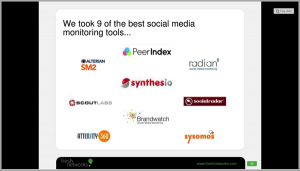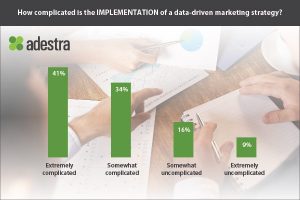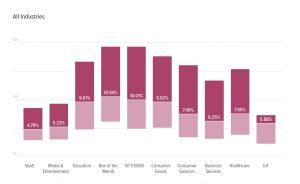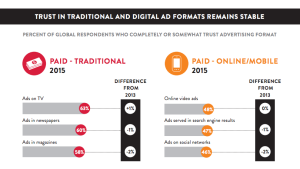In the world of the Internet, there will be very few people who don’t use the Internet. Surely you also do any of your work through the Internet, right? The radical change that the Internet has brought to our communication system is unforgettable. The Internet has greatly influenced our day-to-day activities, resulting in drastic changes in our daily routines.
We share thousands of pieces of information online or on the Internet, but we do not remember them at all. Do you know where did you share your information, maybe not?
Nowadays, no one keeps notes in a notebook or diary, yet everyone prefers to store anything digitally, such as banking information, contacts, addresses, social media posts, etc. When you get help from different organizations, they will let you know that they collect this kind of information so that they can serve you better. But the question is, do they use that data?
EU asked this same question and they also answered it. A new European privacy control agency, GDPR, was launched in May 2018. Its main purpose was to better protect all the privacy of customers or European citizens. This has greatly changed the way customer data is collected, stored, and used.
You may be surprised to know that GDPR has a significant impact on our business. But many traders are ignorant about this thing, and many do not even know what it is. So for everyone’s convenience, the article will now highlight what GDPR is and how it affects our business. So let’s get started without delay.
What is GDPR?
To know about anything or how that thing affects our work, we need to know what the thing is. The same equation applies to GDPR. First of all, we need to present the full form of GDPR and that is “General Data Protection Regulation”.
You may have guessed what it might be from its full form, right? Yes, you guessed the right thing, it’s like a control panel that has been applied to all local privacy laws throughout the EU and the EEA region. This is for those who are citizens of all Europe and various companies from other countries who sell and store our personal information.
This is an excellent initiative because it protects all the privacy of EU and EEA citizens. It assures customers that it will keep their data and all their information safe and secure across Europe.
According to the GDPR guidelines, they are responsible for keeping any of our personal information, such as names, photos, email addresses, bank details, updates on social networking websites, secure.
Even in a B2B setting, it’s all about sharing information between individuals and with each other.
The Basic Rights of GDPR that You Need to Know:
As you already know, GDPR is a control agency. Each organization comes with several rights and the GDPR has certain rights. All traders should have a clear idea about these rights because if you have no idea about them, you may have to pay GDPR fines for any mistake. You probably don’t want to pay that, do you? Let’s learn about its rights.
- Right to Access:
This means that individuals have the right to request access to their data and to ask how their data will be used after it has been collected. If requested, the company must provide a copy of the personal data and in electronic format.
- Right to Data Portability:
Individuals are required to transfer their data from one service provider to another and this is why they have every right to do so. And it is of course used and executed in a machine-readable format.
- Right to be Informed:
This includes any part of the data collection by the companies. Individuals must be notified before data can be collected. Customers will have to opt-out of collecting their data and feel free to give instead of indicating consent.
- Right to be Forgotten:
Customers have the right to have their data deleted if they are no longer subscribers, meaning they no longer wish to continue their consent to use the personal data of a private company.
- Right to Object:
This includes the right of individuals to stop processing their data for direct marketing. There are no exceptions to this rule and any process must be stopped as soon as the request is received. This right must also be made clear to the individual at the very beginning of any communication.
- Right to Restrict Processing:
Individuals may request not to use their data for processing. Their record may be in place, but it will no longer be used.
- Right to have the Information Corrected:
This ensures that individuals can update their data if it is out of date or incomplete or incorrect.
How Does GDPR Impact on Business:
As mentioned earlier, GDPR has a significant impact on our business. But many do not know how it affects our business. If you are a businessman then you should know about it.
The GDPR crux comes down to how you control and process all data and it must be done legally and transparently. Data is used for a specific purpose only. It relates to that purpose with the consent given. Companies under the existing Data Protection Act often rely on generic ‘marketing’ consent or even unselected consent if you do not opt-out.
This generic consent or non-electoral consent does not agree with the GDPR. Under GDPR you must have registered and proven consent for each job. The definition of personal data is also being expanded under the GDPR rules. Personal information is now defined as information that can be used to identify a person or organization directly or indirectly.
This is going to be a significant and potentially costly change for many organizations, especially those that rely on more outsourced marketing methods. As mentioned earlier, your business must choose which route to take when accommodating personal data. One already mentioned is consent but there are other conditions that you can legally declare to store data to communicate with individuals or businesses.
How can I adjust GDPR to my business?
The deadline for GDPR compliance was brought to 25 May 2018. So according to the law, you should, first of all, make sure that your business and its processes comply with the latest rules. However, how these changes can be implemented is still uncertain and unknown to many organizations. The first step in adapting to GDPR is to make sure everyone in your organization understands these rules, their implications, and the necessary changes.
The ICO recommends that each business designate a Dedicated Data Protection Officer (DPO). Some large-scale business handling sensitive data is mandatory by law; Nevertheless, the ICO recommends that you find trained DPOs there to work as an internal expert for all businesses and to ensure business compliance.
It’s recommended to complete an overview of how your business currently stores and collects data, focusing on the consent given to you. This is especially important if you are using marketing methods abroad.
The good news is that inbound marketing already largely follows GDPR policy, with customers requesting information from you and instinctively consenting. However, this does not mean that you are automatically loyal. Your processes still need to be reviewed if you have not already done so. This will help you to be sure of several things like:
- An audit trail of consent that can be used as evidence against an allegation.
- A double opt-in system in which consent is used for only one method of communication at a time.
- Considered as a method of deleting and deleting data at the request of the data subject.
- Consent must extend to IP and cookie tracking and also ensure that your parent has consent to keep any data on children.
- Implementing all of these protections may seem difficult, but in the long run already, you have no choice but to immediately ensure compliance.
Final Thoughts:
There is no doubt that GDPR has led to a global change in how information ownership is realized. American lawmakers have noticed and started working. This has had a significant impact on our business. It has both good and bad sides but in our opinion, its good side is the most. The role it is playing in protecting human security and privacy is unimaginable.
Business & Finance Articles on Business 2 Community
(49)






